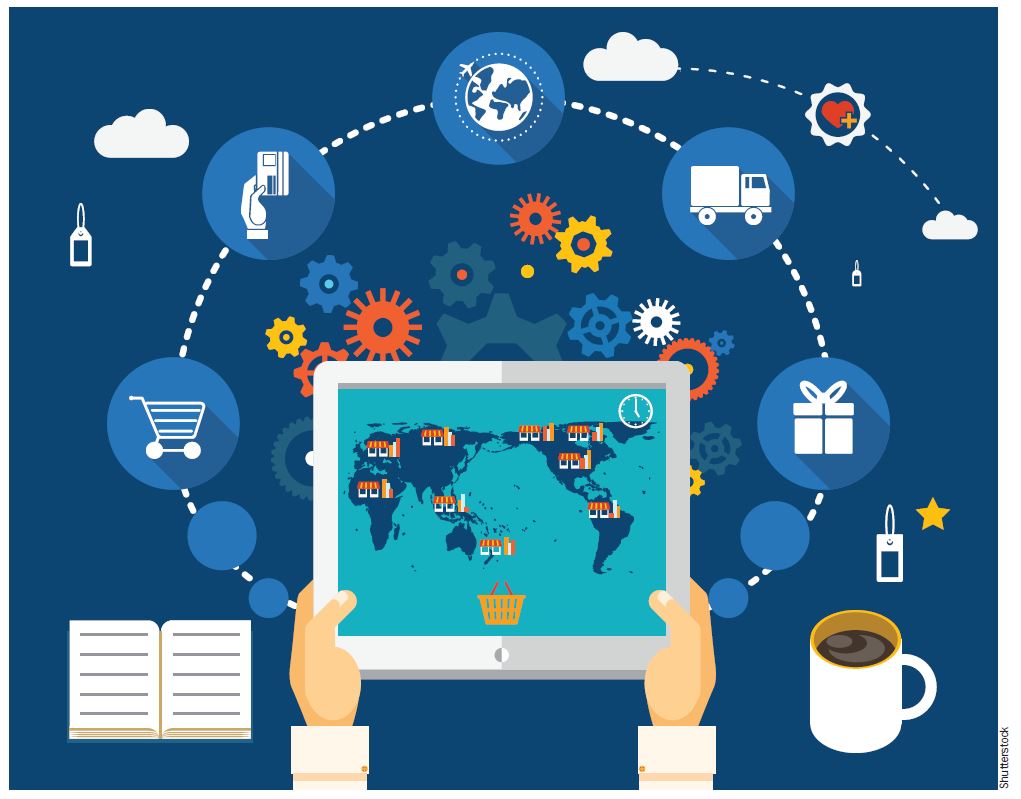Hello!
Digital marketplaces emerged in much the same way brick-and-mortar marketplaces do.
 They cropped up organically, transposing the age-old concept of a centralized site of commercial activity onto the then-developing world of online activity. Early digital marketplaces even operated similarly; sellers peddled their wares on eBay the same way a flea market vendor might offload their old vinyl records.
They cropped up organically, transposing the age-old concept of a centralized site of commercial activity onto the then-developing world of online activity. Early digital marketplaces even operated similarly; sellers peddled their wares on eBay the same way a flea market vendor might offload their old vinyl records.
But digital marketplaces have matured in the intervening years. And the innovations some of them deploy are disrupting entire industries.
How Are Digital Marketplaces Disrupting Industries?
Digital marketplaces operate in a familiar way. They connect two interested parties – typically a buyer and a seller, but it may also be a client/service practitioner relationship. (Occasionally, you also find a true barter marketplace with traders instead of buyers/sellers). They allow consumers to survey the full range of options, seek a fair market price for their purchase, and allow sellers to bypass intermediaries, capitalize on free marketing, and occasionally monetize conventionally unmonetized assets.
 To explain how digital marketplaces are disrupting industries, let’s run through those merits in bullet point form:
To explain how digital marketplaces are disrupting industries, let’s run through those merits in bullet point form:
- Lower costs for consumers
- Greater consumer choice, enabling consumer empowerment
- Democratized access to services and products traditionally monopolized or gatekept
- Free marketing and other perks for sellers and service practitioners.
When you catalog those benefits together, it’s easy to see why digital marketplaces are upsetting some stalwart industries. In the next section, let’s elaborate by offering examples of disrupted industries – and the innovative companies behind those disruptions.
What Industries Have Digital Marketplaces Disrupted?
Exactly which industries have marketplaces disrupted? Below, you will find an (incomplete) list, alongside notable examples of disruptive companies.
Retail
 The first – and perhaps most apparent – example of industry disruption is when retail digital marketplaces emerged.
The first – and perhaps most apparent – example of industry disruption is when retail digital marketplaces emerged.
Prior to retail digital marketplaces, most people shopped at brick-and-mortar stores, physical marketplaces, and the occasional craft market.
Retail digital marketplaces like Craigslist, eBay, and Etsy were instrumental in ushering in the age of eCommerce, which now records multi-trillion-dollar global sales annually.
Real Estate
A relatively recent addition to the marketplace landscape is Noble, a real estate digital marketplace helmed by tech innovator Regan McGee. Nobel matches real estate buyers/sellers with agents in a way that favors the consumer. Buyers and sellers list their criteria, and the marketplace’s proprietary algorithm recommends agents. Then, the agents have a chance to compete for the consumer’s business by offering competitive terms and commission fees. This balance of power shift toward consumers is currently disrupting the real estate industry.
Also read: Best CRM
Hospitality
 People tend to treat platforms like Airbnb and Vrbo as straightforward rental portals – the same way you might book a room through a hotel’s website. But these companies are also examples of digital marketplaces.
People tend to treat platforms like Airbnb and Vrbo as straightforward rental portals – the same way you might book a room through a hotel’s website. But these companies are also examples of digital marketplaces.
They don’t run the accommodations themselves; rather, they provide a third-party market for consumers and peers to engage in short-term rental relationships. Needless to say, the arrangement disrupted the hospitality industry, continuing to be a thorn in the side of global hotel chains.
Repair and Maintenance
Finally, the last decade saw the emergence of repair and maintenance digital marketplaces like Homeadvisor and Taskrabbit.
 These digital marketplaces put homeowners in contact with freelance journeyers, repair people, and maintenance specialists in order to circumvent costly repair companies. Like Noble is doing with real estate, the arrangement also helps keep price fixing and opaque pricing in check by allowing consumers to dictate the terms of the arrangement.
These digital marketplaces put homeowners in contact with freelance journeyers, repair people, and maintenance specialists in order to circumvent costly repair companies. Like Noble is doing with real estate, the arrangement also helps keep price fixing and opaque pricing in check by allowing consumers to dictate the terms of the arrangement.
Everything is great, but these sites belong to the world of web2, that is, they are too centralized.
To replace such services, decentralized ones begin to appear.
With a concrete example, we will show how the Quasa Connect blockchain service works, setting up transactions between freelancers and clients using new crypto settlement tools.
By connecting your crypto-wallet, a freelancer or customer instantly settles among themselves using the Quasacoin (QUA) cryptocurrency.
 The new crypto-settlement tools in QUASA democratize access to services traditionally tied to fiat money and banks, and open up opportunities for hundreds of millions of people. You are not tied to the currency of any country, and you can easily hire any specialist from anywhere in the world and calmly pay for his work.
The new crypto-settlement tools in QUASA democratize access to services traditionally tied to fiat money and banks, and open up opportunities for hundreds of millions of people. You are not tied to the currency of any country, and you can easily hire any specialist from anywhere in the world and calmly pay for his work.
There is no need for conversion and complexities with banking operations. No need to know the laws of different countries.
Since the advent of digital marketplaces, new innovators have uncovered disruptive potential in the concept. You can expect to see even more digital marketplaces flourish in the coming decade as consumers continue to demand convenience and choice.
Thank you!
Join us on social networks!
See you!






